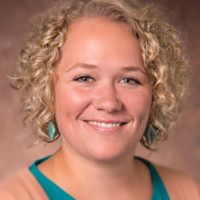
Sarah R. Rondot
- Courses5
- Reviews5
- School: University of Oregon
- Campus:
- Department: Women's Studies
- Email address: Join to see
- Phone: Join to see
-
Location:
1585 E 13th Ave
Eugene, OR - 97403 - Dates at University of Oregon: September 2013 - June 2016
- Office Hours: Join to see
Political Leanings:
| Liberal | Conservative |
Biography
University of Oregon - Women's Studies
Experience
University of Oregon
Women's and Gender Studies Instructor
Mentored undergraduate and graduate students as they led discussion sections for Women's and Gender Studies 101 (Women, Difference, and Power), taught 8 terms of Women's and Gender Studies 101, two terms of Feminist Pedagogy, as well as Feminist History and Development, Gender, Literature & Culture, and the writing capstone course for seniors.
University of Oregon
Composition GTF
Sarah worked at University of Oregon as a Composition GTF
University of Oregon
Postdoctoral Fellow
At the UO, I teach courses in contemporary American literature, feminist science fiction, film and media studies, trans* literatures, writing, and women's and gender studies.
University of Central Missouri
Women's, Gender, and Sexuality Studies Faculty
I teach several courses in the Women's, Gender, and Sexuality Studies Department, housed within the Interdisciplinary Studies program at the University of Central Missouri. Classes I teach include: Women's Voices (WGS intro); Sexuality, Identity, and Action; Feminist Theory & Methods; Intro to TV Studies; Dystopian Fiction; LGBTQ Studies; Queer Theory.
Teaching and Learning Center
Writing Specialist and Tutor
Undergraduate writing, grant writing, cover letters, personal statements, resumes, technical writing
Education
Indiana University Bloomington
Bachelor's degree
Gender Studies
Indiana University Bloomington
Bachelor's degree
English
University of Oregon
Doctor of Philosophy (PhD)
English & Women's and Gender Studies
University of Oregon
Women's and Gender Studies Instructor
Mentored undergraduate and graduate students as they led discussion sections for Women's and Gender Studies 101 (Women, Difference, and Power), taught 8 terms of Women's and Gender Studies 101, two terms of Feminist Pedagogy, as well as Feminist History and Development, Gender, Literature & Culture, and the writing capstone course for seniors.University of Oregon
Composition GTF
University of Oregon
Postdoctoral Fellow
At the UO, I teach courses in contemporary American literature, feminist science fiction, film and media studies, trans* literatures, writing, and women's and gender studies.
Publications
"'Bear Witness and Build Legacies': Twentieth and Twenty-First Century Trans* Autobiography"
Auto/biography Studies
U.S. ideologies—which medical discourses create and maintain—rationalize trans* people as trapped within improper bodies or as liberated within surgically constructed new ones. In contrast, trans* autobiographers resituate themselves as active subjects rather and understand gender as a diverse spectrum. Twenty-first century autobiographers Jennifer Finley Boylan and Alex Drummond imagine trans* identity as productive – the goal is not to justify gender diversity but to explore it. Drummond and Boylan reconceptualize trans* identity as viable with or without medical intervention and articulate a continuous subject rather than one split between past and present, thereby resisting dominant ideals of trans* selfhood.




